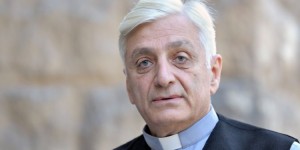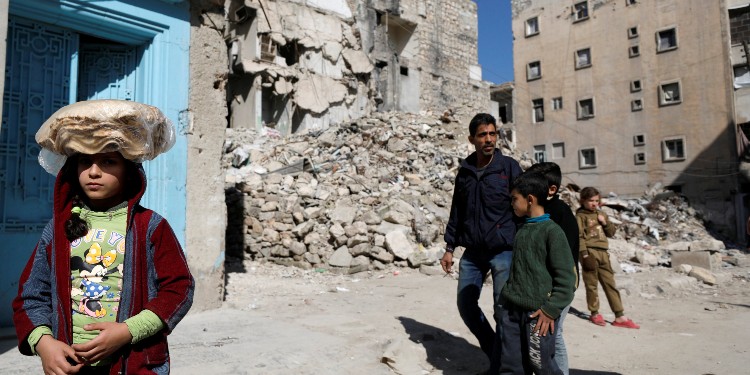ALEPPO, besieged and destroyed in Syria’s war, is calm now, but 11 years of war and the accompanying economic sanctions have left the city impoverished.
“We don’t have any direct violence, armed groups or bombardments on or around the city since the end of 2017,” Chaldean Catholic Bishop Antoine Audo of Aleppo told the Catholic News Service during a visit to Lebanon. “Now the problem is the bombardment of poverty.”
“Because of the embargo on Syria, we have so many difficulties. There is no work. We don’t have fuel,” he said.
Currently, 80 per cent of the city’s residents live below the poverty line, Bishop Audo said.
 “The rich left the country or became the middle class, the middle class became poor and the poor became destitute,” Bishop Audo said. “It’s a very, very difficult situation.”
“The rich left the country or became the middle class, the middle class became poor and the poor became destitute,” Bishop Audo said. “It’s a very, very difficult situation.”
“Every day I meet with people who share with me their difficulties: how to buy food, how to pay tuitions, how to afford medical care,” the bishop said.
Amid the suffering, the Christian presence in Syria continues to dwindle, due to emigration. Bishop Audo, a native of Aleppo, said that, before the war, there were approximately 1.5 million Christians in Syria; now, he estimates their number at 500,000. “In Aleppo we were 150,000. Now we are only 30,000.”
The bishop acknowledged that the Church cannot make people stay but, “as bishops and priests, we do all we can to help the Christians to stay.” That help includes providing medical support, education and food baskets as well as assisting the elderly.
“Aid to the Church in Need, Caritas and the Jesuit Refugee Service are doing a lot,” he said.
This summer, to ease the suffering of Christians, church leaders organised weeklong camps for parish youth groups and families in the mountain village of Btar.
By the time the camps conclude, 3,000 people will have attended, with transportation and lodging provided by Aid to the Church in Need. From Aleppo, it’s about a five-hour bus ride, and from areas near Qamishli in the northeast, a half-day trip. Such activities are important to boost the morale of Christians and to provide spiritual nourishment, the bishop said.
The presence of Christians in Syria and the Middle East is very important for the universal church, Bishop Audo said, adding that people were “surprised that the Christians of the West don’t worry about this issue.”
“A lot of Muslims say to us: ‘Don’t leave, because without the presence of Christians in Syria, Syria is nothing,’” the bishop said.
“My hope is that even if we are few as Christians, we have to persevere, to be active and to give a sense of our faith and to give testimony. We don’t have to fear and we don’t have to escape. We must have a vision and a conviction, which we have from our faith, from our history,” he said.





